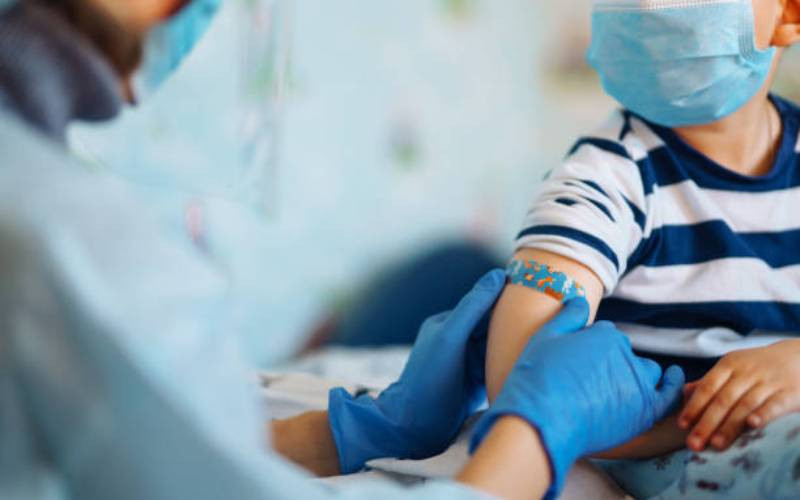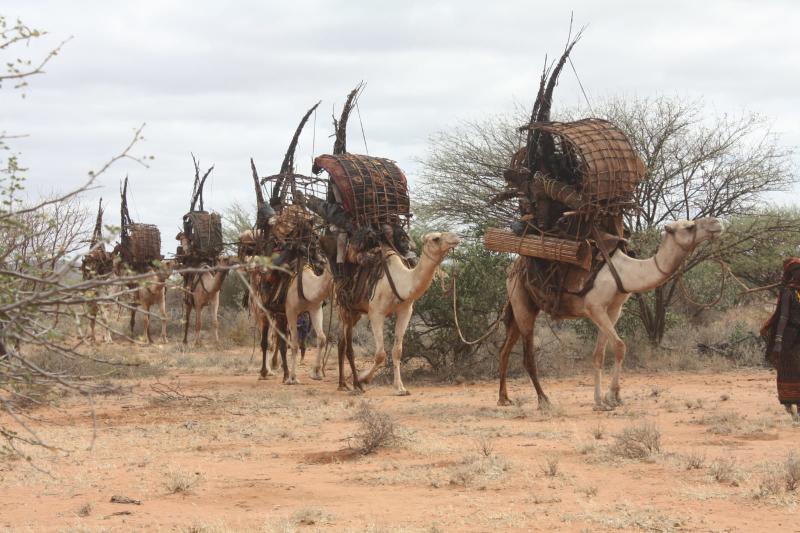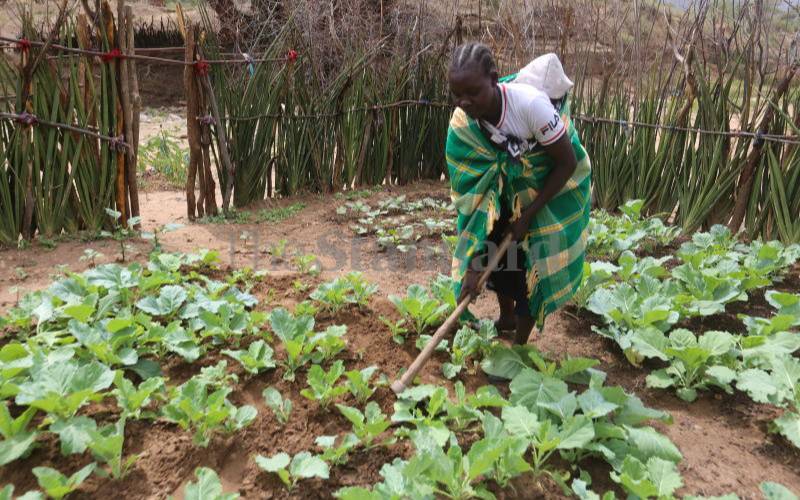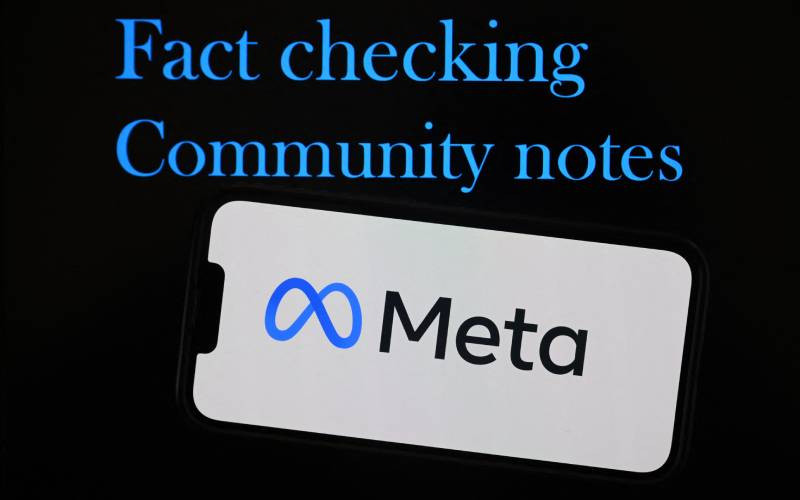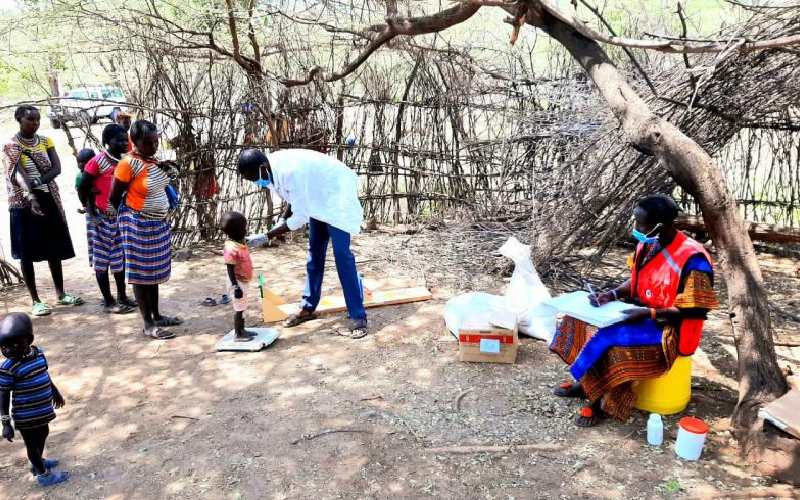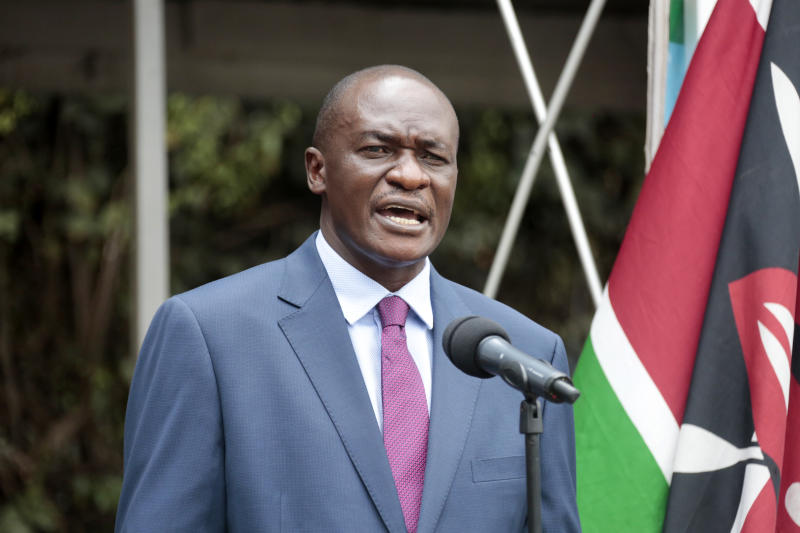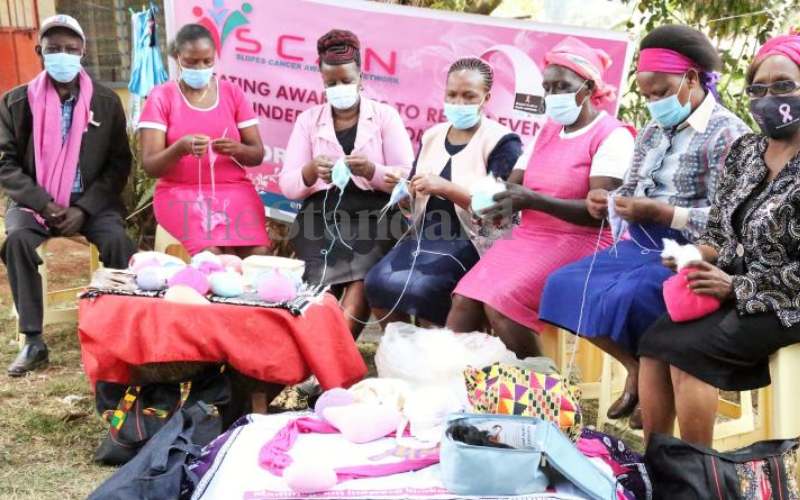
Members of Scan Slopes Cancer Awareness Network going about with their weekly activity in Nyeri. Left, John Mwangi. [Kibata Kihu, Standard]
John Mwangi, 66, battled breast cancer. Both his parents and elder sister succumbed to various cancers in a span of ten years. His wife was also diagnosed with breast cancer early this year.
“I lost my father in 2010 to cancer and my mother passed away two years later in 2012 due to cervical cancer, in 2020 my elder sister also passed away from the same disease,” recalls the soft-spoken Mwangi who was diagnosed with breast cancer five years ago.
“Like most men, I did not want to go to the hospital when I noticed the lump on my breast and my nipple had inverted,” explains Mwangi. “I kept quiet until I saw blood oozing from my chest, and I realized it was serious.”
But he was in denial and sought a second opinion after the physician informed him removing the breast tissue required surgery-which he underwent, followed by a string of chemotherapy and radiation treatment sessions.
Mwangi’s cancer has been in remission for the last four years in which time he found psychosocial guideposts at the Slopes Cancer Awareness Network (SCAN), a support group which has given him a voice as a survivor.
“I have found that speaking out and especially communing with fellow survivors has helped me to understand a lot about the disease,” said Mwangi who encouraged his wife to seek treatment and “she too underwent surgery and chemotherapy in February. It was me who held her hand through it because I believed we could overcome it.”
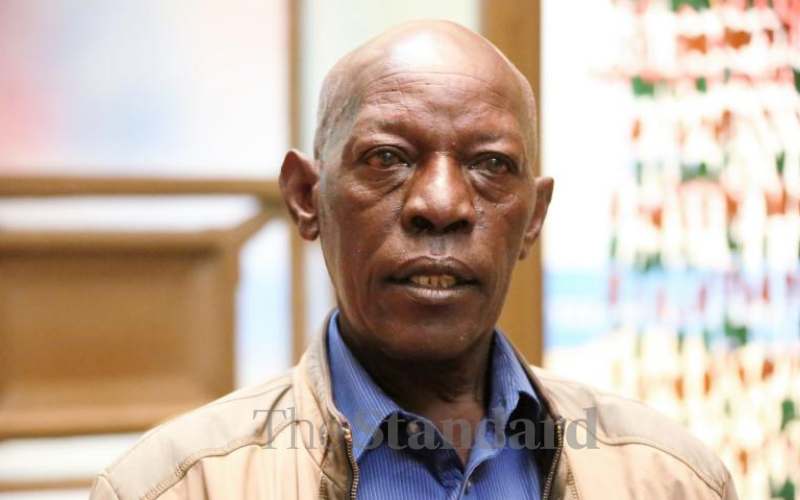
John Mwangi’s cancer has been in remission for the last four years. [Kibata Kihu, Standard]
She is now in recovery and Mwangi says communing with fellow survivors played a major role in treating his wife with compassion.
“I now ensure my children get tested annually because early detection is key to fighting cancer, especially breast and cervical cancer,” he said.
Then there is Teresia Muthoni, 62. She was diagnosed with breast cancer at 35 in 1997 and recalls “I was so afraid that once I had a mastectomy and chemotherapy I would not have any more children, but my husband stood by me through it all.”
By 1999 she was in remission but was uncertain how she would care for the infant with one breast after falling pregnant and giving birth. “I was able to care for my baby,” she says. “My husband and I still went on to have two more children in 2001 and 2003,” she chuckles adding they took a break 10 children later when she turned 42 “and despite everything I have been through, cancer did not change our love and affection for each other.”
Muthoni is also a member of SCAN where she focuses on young women during awareness campaigns, encouraging them to get tested since one can still live a full life after diagnosis.
The support group was founded by Elizabeth Njeri, herself a breast cancer survivor about a decade ago and focuses on cancer awareness in Central Kenya where other support groups have sprouted up in Muranga, Kirinyaga and Laikipia.
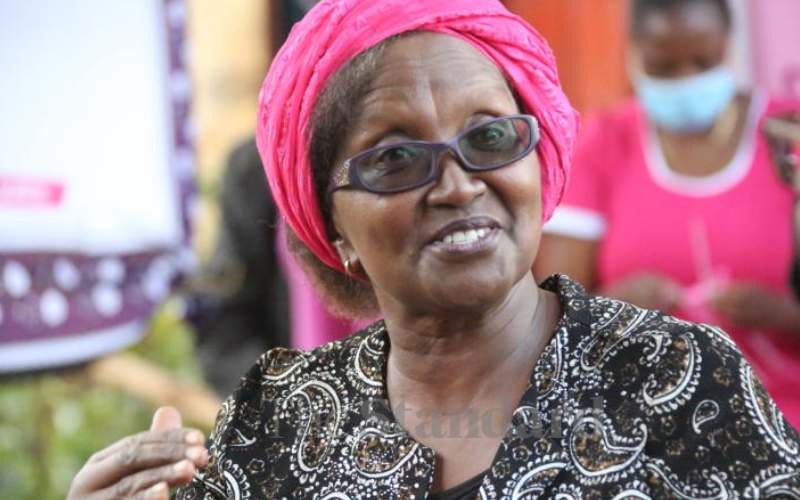
Slopes Cancer Awareness Network (SCAN) chairperson Elizabeth Njeri. [Kibata Kihu, Standard]
“Many of the patients who underwent treatment in Nyeri County Referral Hospital received the support of our group and they too encourage similar groups in their home counties,” explained Njeri.
The group stitches breast forms (knockers) which they distribute to survivors and women who have undergone a mastectomy to remove all breast tissue from a breast are given silicone prosthesis or mastectomy bra, a special bra that has a pocket to hold the breast form or prosthesis in place.
Njeri was given a silicone prosthesis after her breast was removed, but it is too expensive and most women cannot afford it as it costs between Sh10,000 to Sh25,000.
Njeri, a dressmaker, chose to knit her own breast forms and while the cost of the raw materials is expensive, the survivors use the work to earn a small stipend.
“Due to the cancer treatments you find many of us have lymphedema on our limbs, mostly on our arms and cannot do heavy chores, so this work helps in a small way,” says Njeri whose group also makes handbags to earn income while creating awareness about breast cancer.
 The Standard Group Plc is a multi-media organization with investments in media platforms spanning newspaper print
operations, television, radio broadcasting, digital and online services. The Standard Group is recognized as a
leading multi-media house in Kenya with a key influence in matters of national and international interest.
The Standard Group Plc is a multi-media organization with investments in media platforms spanning newspaper print
operations, television, radio broadcasting, digital and online services. The Standard Group is recognized as a
leading multi-media house in Kenya with a key influence in matters of national and international interest.



